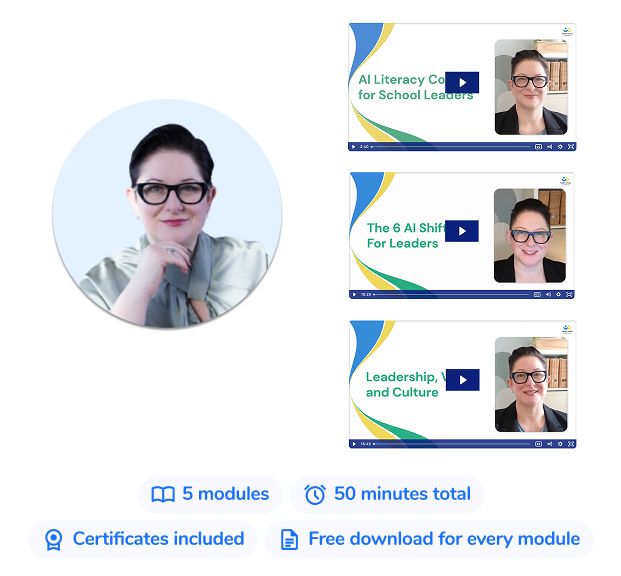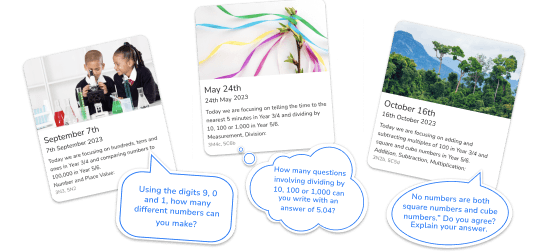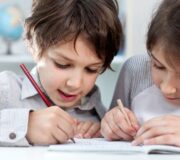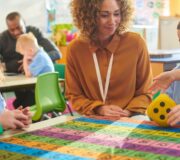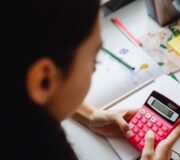Year 6 Mental Maths: Preparing for SATs And Secondary
Year 6 mental maths like much of the rest of this final primary school year is very much about preparing for the SATs test in the summer term. This key focus runs throughout the year and is certainly in the minds of teachers!
However this is also pupils’ opportunity to consolidate their learning from across all of Key Stage 2 before they transition to secondary school. Mental arithmetic skills are a vital part of this as they will be dealing with much bigger numbers, including place value up to 10,000,000. Mental maths tests are no longer a standalone part of the Year 6 SATs but questions which require mental maths skills are an integral part of the mathematics papers.
Use of mental maths worksheets may seem like a counter intuitive notion but arithmetic tests and workbooks can help with early gap analysis to help plan the year and set up interventions where needed.
What the national curriculum says about Year 6 mental maths
“Pupils should be taught to perform mental calculations, including with mixed operations and large numbers”
“At this stage, pupils should develop their ability to solve a wider range of problems, including increasingly complex properties of numbers and arithmetic, and problems demanding efficient written and mental methods of calculation. With this foundation in arithmetic, pupils are introduced to the language of algebra as a means for solving a variety of problems.”
Fluent in Five Years 1-6 (Weeks 1-6)
Download this free pack of daily maths questions to build fluency in mental maths and prepare for SATs.
Download Free Now!Recommended mental maths skills to teach in Year 6
In Year 6 children will hopefully be fluent and fast in their recall of multiplication facts from the 1-12 time tables. They should also be able to use the four operations and pick the appropriate operation for word problems, as well as explaining their reasoning. They will use more substitution of shapes or icons for numbers as an introduction to algebra which is covered in more depth now and can be applied to a range of problem solving.
Year 6 pupils should also be taught:
- Addition and subtraction of multiples of 10 (e.g. 60 + 40= 100, 80 + 30 = 110, 40 + 20 = 60)
- Addition and subtraction of multiples of 100 (e.g. 200 + 400 = 600, 500 + 600 = 1,100, 900 + 500 = 1,400)
- Addition and subtraction of multiples of 1000 (e.g. 4000 + 5000 = 9000)
- Double and halves of multiples of 10 to 100 (e.g. double 80 = 160, half 50 = 25)
- Quadruples (x4) of all numbers to 10 (e.g. 5 x 4 = 20)
- Multiplying two-digit number by 10 (e.g. 31 x 10 = 310)
- Halves of any number up to 100 (e.g. half of 22 = 11, half of 51 = 25.5)
- Multiplying and dividing any number by 10 and 100 (e.g. 14 x 100 = 1,400, 45 ÷ 100 = 0.45, 3.4 x 10 = 34)
- Multiplication of multiples of 10 and 100 based on known facts (e.g. 50 x 50 = 2,500)
- Squares of all number up to 12
- And cubes of 2,3,4 and 5
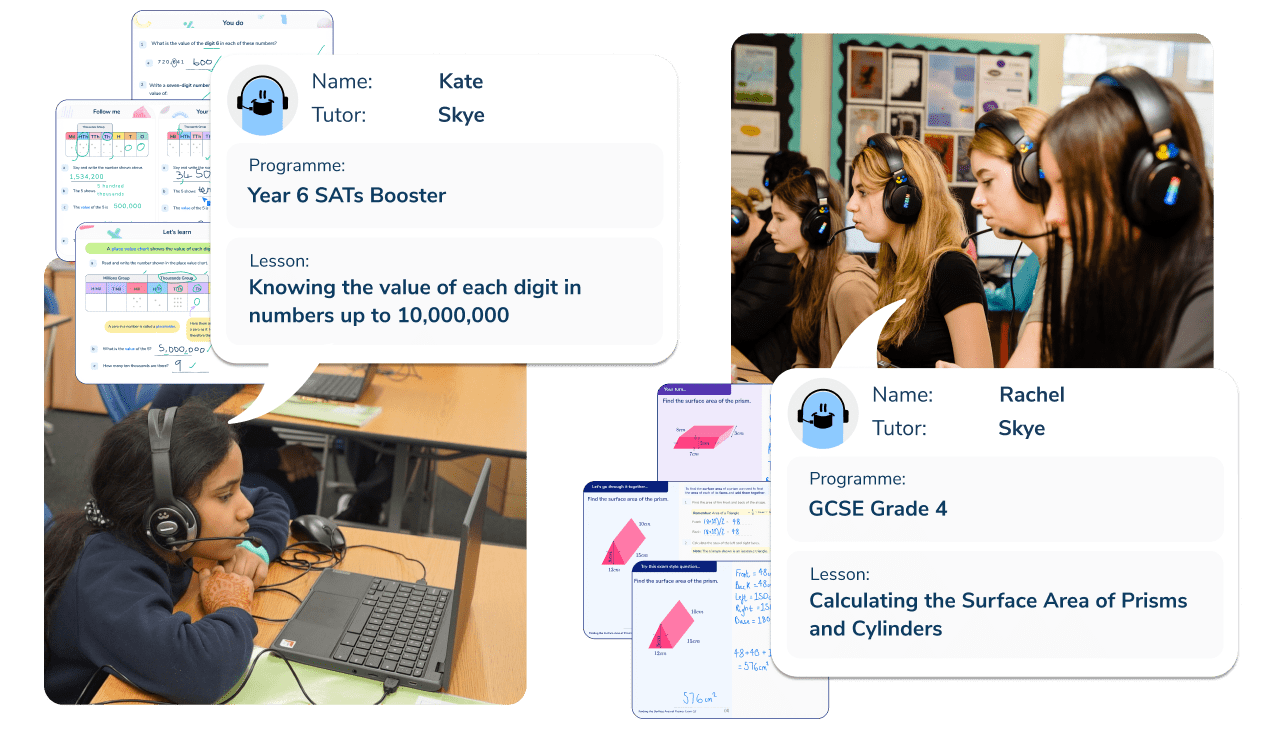
Meet Skye, the voice-based AI tutor making maths success possible for every student.
Built by teachers and maths experts, Skye uses the same pedagogy, curriculum and lesson structure as our traditional tutoring.
But, with more flexibility and a lower cost, schools can scale online maths tutoring to support every student who needs it.
Watch Skye in actionYear 6 mental maths: place value
In Year 6 pupils should know place value to 10,000,000 to ensure they know the value of any digit within a number to 8 digits. They will also have a good grasp of negative numbers and rounding numbers. All of this should be applied to mathematical reasoning and problem solving challenges.
Any interventions sought at this stage should ensure place value is secure before anything else as it will have such a bearing on all other topics and questions within a SATs test scenario, not to mention their ability to problem solve.
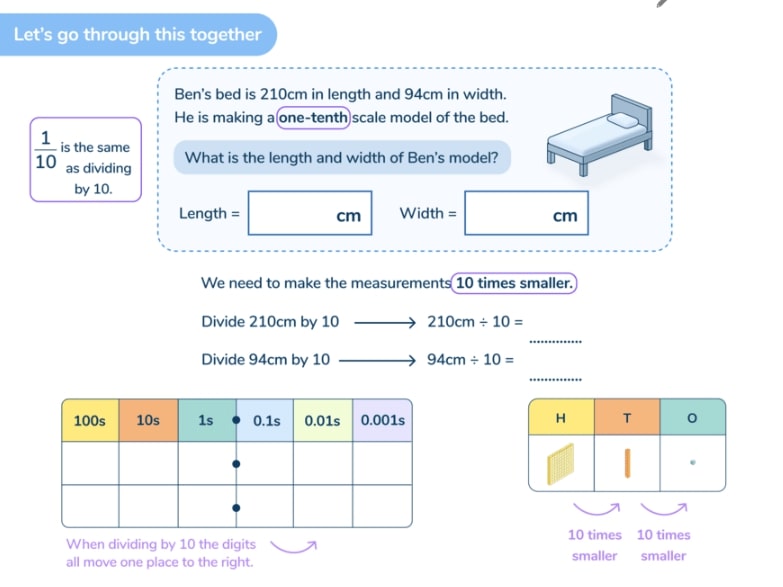
To check their answers, place value games, as well as the use of specific place value maths activities, will help to improve understanding and mental recall of place value and should be included at least once a week ideally to ensure continuing and progressing fluency.
Year 6 mental maths: addition and subtraction
In Year 6 children will need to practise addition and subtraction regularly and work up to bigger and bigger numbers, which will also help to spot any maths misconceptions along the way for the purpose of early intervention.
Pupils will benefit from seeing questions in different ways, different formats, and with a variety of ways to work out their answers. This may include maths practice using powerpoint revision slides, maths questions and challenge problems which allow for discussion in pairs or groups, and multi step word problems where you could even include the answer sheets for the plenary to allow students to check their answers and then have time to work out for themselves where they went wrong.
Year 6 mental maths: multiplication and division
It is useful in the autumn term to check that pupils are confident and fluent in their recall of times tables. It is also important to ensure that as well as understanding their multiplication facts they know that they can apply this in the inverse to division questions.
Just because the multiplication tables check is in Year 4, don’t make the mistake of thinking you won’t need to work on the mental recall of times tables which will need a lot of regular revisiting to ensure the fluency is not lost.
Ensuring maths facts are secure and that children can apply these with a strong understanding of the number values behind them, is essential for SATs and for secondary school progress. Intervention in the autumn term will, for many children, give them a ‘free year’ ahead to focus on the application to a wide range of problems.
Year 6 mental maths: fractions, percentages and decimals
In Year 6 the pupils will need to be much more secure in their fractions understanding as they will start to work with different denominators and mixed numbers. They will be multiplying fractions and also finding fractions of whole numbers, which will all require solid mental maths skills in order to both work out and check their answers.
In Year 6 children will be multiplying and dividing numbers by 10, 100, and 1,000 and this will include numbers up to three decimal places. Working in decimals will also include calculating decimal fraction equivalents and this will likely need a lot of practice of methods as well as drawing on known mental maths strategies.
Pupils will also be working with percentages and will know the equivalent fractions and decimals. Asking children to regularly move between percentages, decimals and fractions will make these more ‘mainstream’ for them and help them to hone the mental maths skills needed to calculate, i.e. 25% of 400 by knowing that 25% is the same as ¼ and then dividing 400 by 4.
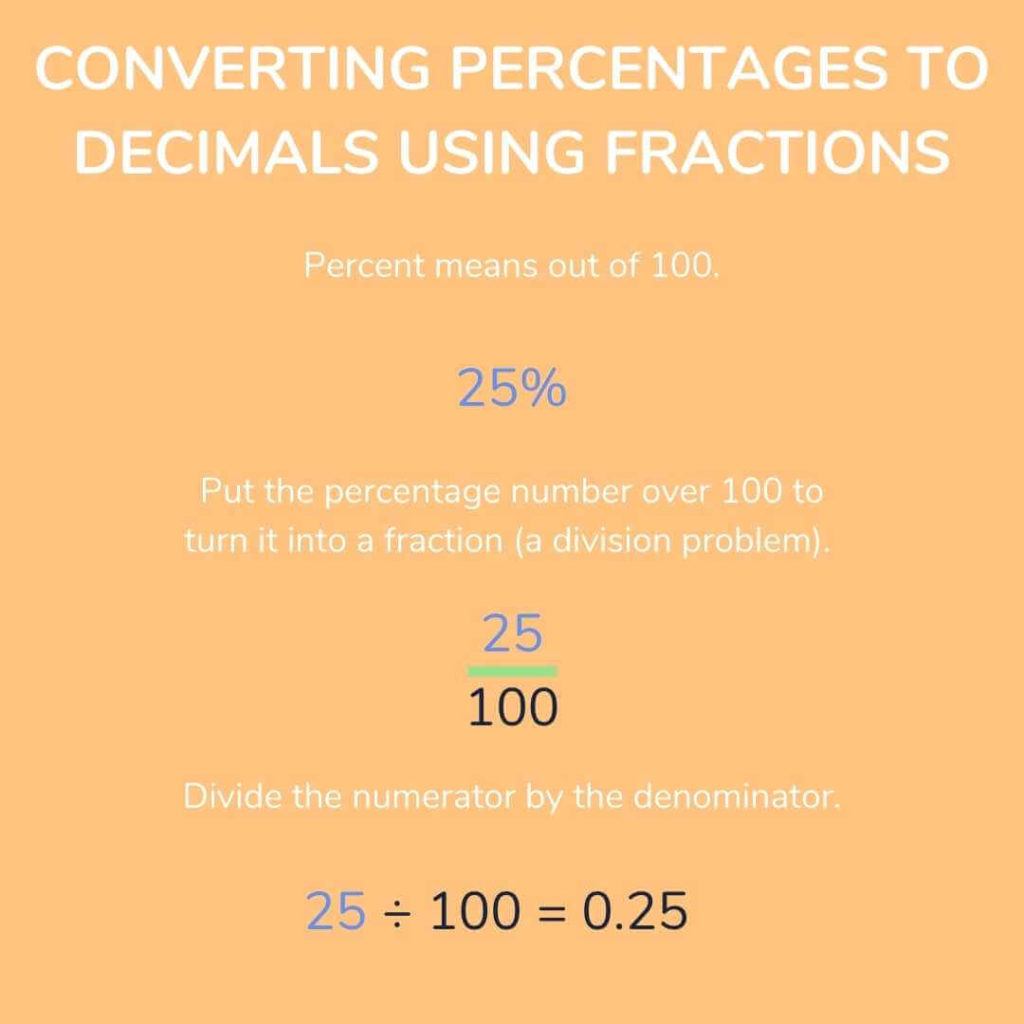
This agility with numbers comes from the strong foundations in both times tables and place value. Therefore, it is essential that students are proficient in those topics.
Third Space Learning’s AI tutoring focuses on reinforcing pupils’ understanding of fundamental maths concepts. Designed to fit the needs of the individual student, our tutoring sessions work on filling the gaps in maths knowledge.
The importance of mental maths skills in Year 6 problem solving
It is vital in Year 6 that problem solving gives pupils the chance to apply and practise their skills in all four operations. Opportunities for discussion in pairs and groups can also help them to build confidence, without the daunting potential of a written test.
Maths reasoning questions feature in the SATs and they should be familiar with the layout and expectation of these, but time for discussion and application of their knowledge with more real world problems verbally and during the school day – such as working out how much food is needed for the end of term party – can help to put their learning into context.
In Year 6 multi-step problems with a range of operations used, including mixing operations for the same problem, are vital to help the questioning which pupils will do in their heads during a test. Some pupils may struggle with imagining some of the scenarios in a test situation and it is useful to give opportunities even for role play of some of the types of questions they may be given in a test, so that they can work it out in real life. This may involve the gift shop on a class trip, or a shopping trip, or setting up a role play area for a lesson – something we do very naturally in early years but will still be very useful in Year 6 for those children struggling to piece together the real world application of the maths methods and strategies they are learning.
Year 6 mental maths challenges
As well as the maths problems and maths challenges mentioned above, it can be useful to send home ideas for parents to do with their children as they are more able to add the real world context as part of their daily lives. Telling the time, weighing, paying at shops, measuring items, and working out what is fair when sharing and grouping items. All of these present opportunities for children to apply their knowledge and maths recall, alongside understanding how maths fits into the outside world.
Within school you may set up a supermarket checkout scenario with some items to buy and a till, which can help to contextualise decimal numbers when dealing with £ and pence. KS2 maths relies on a solid foundation of skills which are then applied to, and within, a range of contexts. The order of operations can also be more clear when dealing in concrete scenarios as children often are very aware in their home life of when they are being short changed, for example, with money or time!
An ideal challenge in Year 6 is to set them a budgeting task where planning is required. This could turn into a full enterprise project or could be more theoretical. It also ties nicely into teaching use of spreadsheets for a cross over with ICT. You could assign them a budget (real or imaginary) to make a product of their choice that they can sell at the school fair.
They must research prices (you can give them catalogues or some links to websites) of ingredients/materials, to then work out how much they can afford with the budget and then how to turn that into profit. How many bars of soap, for instance, could they make from their ingredients. Would there be left over of any ingredients due to different pack sizes? And then how much could you charge to make a profit? If you did a special offer what is the least you could accept to at least cover your costs? And so on. Then you can compare all the groups and see who made the most money. This is a great “Apprentice” task where you could even hire or fire some teams at the end!
Year 6 mental maths resources
In the Third Space Learning maths hub you can find a range of teaching resources, such as worksheets, mental maths games and activities to support the development of mental maths skills at home and at school.
We offer a range of SATs arithmetic papers, times tables tests, and independent recap retrieval tasks to help you to work on mental maths skills alongside the written methods.
Take a look at some of our free mental maths resources:
- 150 Mental Maths Questions And Answers For Year 3 to Year 6
- 10 Minute Maths Number Facts
- Mental Maths Year 2
- Mental Maths Year 3
- Mental Maths Year 4
- Mental Maths Year 5
More year 6 maths resources and guidance
- Year 6 Maths Test (Year 6 content only)
- Year 6 Maths Questions (with answers)
- Year 6 Maths Sats Papers
DO YOU HAVE STUDENTS WHO NEED MORE SUPPORT IN MATHS?
Skye – our AI maths tutor built by teachers – gives students personalised one-to-one lessons that address learning gaps and build confidence.
Since 2013 we’ve taught over 2 million hours of maths lessons to more than 170,000 students to help them become fluent, able mathematicians.
Explore our AI maths tutoring or find out about an online maths tutor for your school.
